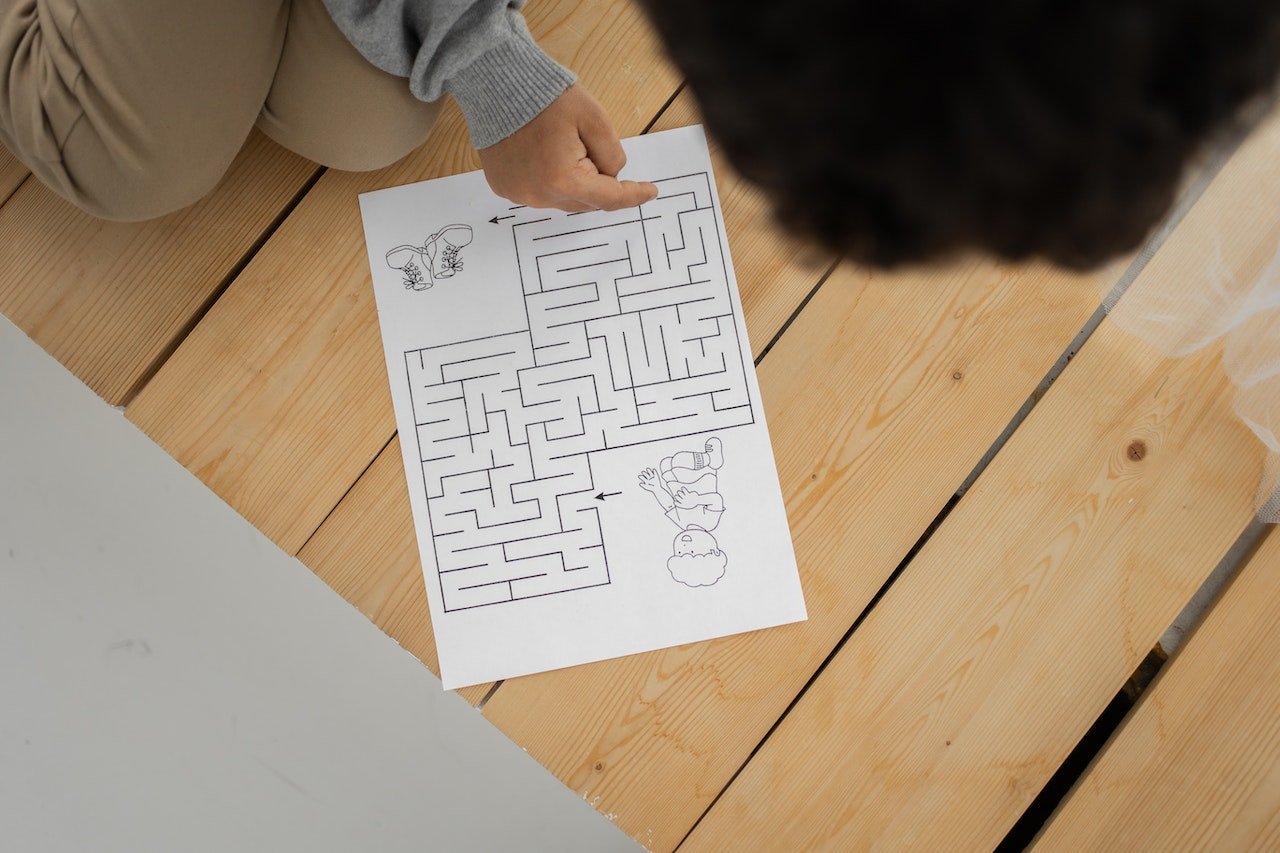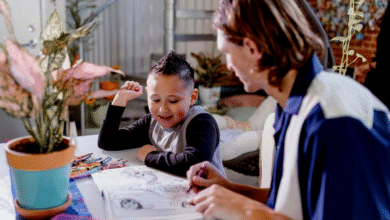Top 12 Tips Why Ages 2-7 Matter So Much for Brain Development

As parents, we all want the best for our children. We want them to grow up healthy, happy, and successful. We invest time, money, and effort to provide them with the best education, nutrition, and environment. However, one aspect of child development that is often overlooked or underestimated is brain development, especially during the crucial ages of 2 to 7. In this article, we will explore the top 12 tips on why ages 2-7 matter so much for brain development and what parents can do to optimize their children’s cognitive, emotional, and social growth.
Understanding Brain Development in Early Childhood
Following are the tips to understand the brain development in early childhood.
Tip 1: Provide a Safe and Stimulating Environment
- How Does the Environment Affect Brain Development?
- What are the Characteristics of a Safe and Stimulating Environment for Children?
- How Can Parents Create a Safe and Stimulating Environment at Home and Outside?
Tip 2: Encourage Play and Exploration
- How Does Play and Exploration Foster Brain Development?
- What are the Benefits of Play and Exploration for Children?
- What are the Types of Play and Exploration Activities that Parents Can Encourage?
Tip 3: Read, Talk, and Sing to Your Child
- How Does Reading, Talking, and Singing Affect Brain Development?
- What are the Best Practices for Reading, Talking, and Singing to Children?
Tip 4: Provide Positive Discipline and Emotional Support
- How positive discipline helps in brain development?
- Why emotional support is essential for brain development?
Read More: Education: A Pathway to a Bright Future
Tip 1: Provide a Safe and Stimulating Environment
The first and most fundamental tip for promoting brain development in early childhood is to provide a safe and stimulating environment. This means that children need to feel secure, loved, and protected from harm, while also being exposed to a variety of experiences, challenges, and opportunities for learning and exploration.
Research has shown that the quality of the environment in which children grow up affects their brain structure and function, as well as their cognitive, social, and emotional development. For example, children who are exposed to chronic stress, neglect, abuse, or poverty are more likely to have smaller brains, lower IQs, and poorer mental health outcomes than those who grow up in supportive and enriching environments.

On the other hand, children who have access to a safe and stimulating environment are more likely to develop strong neural connections, adapt to new situations, and thrive in school and beyond. A safe and stimulating environment for children should include the following characteristics:
- Consistent and responsive caregiving: Children need to have caregivers who are attuned to their needs and provide them with consistent and nurturing care. This means responding promptly and appropriately to their cries, smiles, and other signals, and creating a warm and positive emotional climate.
- Age-appropriate toys and materials: Children need toys, books, and other materials that match their developmental level and interests. For example, infants need toys that are easy to grasp, chew, and manipulate, while toddlers need toys that promote language, creativity, and physical skills.
- Safe and accessible play spaces: Children need to have a designated and safe place to play, explore, and move around freely. This can be a room, a yard, or a playground, depending on the child’s age and abilities. The play space should be free from hazards, such as sharp edges, small parts, or toxic substances.
- Positive social interactions: Children need to have opportunities to interact with other children and adults in positive and meaningful ways. This can be through playdates, group activities, or family events. Positive social interactions help children develop social skills, empathy, and confidence.
- Healthy nutrition and sleep: Children need to have a healthy diet and adequate sleep to support their brain development. This means providing them with nutritious foods, limiting sugary and processed foods, and ensuring they get enough sleep and rest.
To create a safe and stimulating environment for their children, parents can follow these tips:
- Provide consistent and loving care, such as responding promptly to their cries, holding and comforting them, and being present and attuned to their needs.
- Offer a variety of toys, books, and materials that match their age and interests. Rotate the toys regularly to keep them fresh and engaging.
- Create a designated play space that is safe, accessible, and age-appropriate. This can be a playroom, a fenced yard, or a local playground.
- Plan social activities that involve positive interactions with other children and adults. This can be playdates, storytime at the library, or family outings.
- Ensure that their children have a healthy diet and sufficient sleep. This means providing them with a balanced diet, limiting screen time, and establishing a consistent bedtime routine.
By providing a safe and stimulating environment for their children, parents can help optimize their brain development and lay the foundation for a healthy and successful future.
Tip 2: Encourage Play and Exploration
The second tip for promoting brain development in early childhood is to encourage play and exploration. Play is not only a fun and enjoyable activity for children, but it also serves a crucial role in their brain development. Play allows children to explore their environment, experiment with new ideas and behaviors, and practice important skills, such as problem-solving, creativity, and social interaction.
Research has shown that play is essential for brain development, as it promotes the formation of new neural connections and strengthens existing ones. Play also helps children regulate their emotions, reduce stress, and develop resilience.
To encourage play and exploration, parents can follow these tips:
- Provide open-ended toys and materials that allow for creativity and imagination. Examples include blocks, art supplies, dress-up clothes, and sand and water play.
- Allow plenty of unstructured playtime, without too many scheduled activities or screens. Children need time to play and explore on their own, without adult direction or intervention.
- Join in the play and follow the child’s lead. Parents can show interest in what their children are doing, ask open-ended questions, and provide support and encouragement.
- Provide opportunities for outdoor play and exploration. Outdoor play allows children to experience nature, engage in physical activity, and develop gross motor skills.
- Encourage social play and interaction with other children. Playdates, group activities, and organized sports can help children learn social skills, cooperation, and conflict resolution.
By encouraging play and exploration, parents can help optimize their children’s
brain development and promote a love of learning. It’s important to remember that play is not a frivolous or optional activity, but rather an essential part of childhood and brain development.
Read More: Schools, Not Teachers, Must Reduce Stress and Burnout—Here’s How
Tip 3: Read and Talk to Your Child
The third tip for promoting brain development in early childhood is to read and talk to your child. Reading and talking to young children is one of the best ways to support their language and cognitive development. By exposing children to rich and varied language, parents can help them build vocabulary, grammar, and comprehension skills.
Research has shown that children who are exposed to a rich language environment from an early age have better language and cognitive outcomes, as well as improved academic performance later in life. Reading and talking to children also promotes bonding and a love of learning.

To read and talk to your child, parents can follow these tips:
- Read to your child every day, even if it’s just for a few minutes. Choose age-appropriate books that are engaging and enjoyable.
- Talk to your child throughout the day, describing what you’re doing and asking open-ended questions. This helps build vocabulary and comprehension skills.
- Sing songs, recite nursery rhymes, and play games that involve language and rhythm. These activities help build phonemic awareness and language skills.
- Limit screen time and prioritize real-life interactions. Screen time can be detrimental to language and cognitive development, so it’s important to balance it with face-to-face interactions.
- Create a language-rich environment by labeling objects, describing actions, and using varied vocabulary. This helps children learn new words and understand their meanings.
By reading and talking to your child, parents can help promote language and cognitive development, as well as bonding and a love of learning.
Tip 4: Provide Positive Discipline and Emotional Support
The fourth tip for promoting brain development in early childhood is to provide positive discipline and emotional support. Children need to feel safe, secure and loved in order to thrive and develop. Positive discipline involves setting clear expectations, providing consistent consequences, and using positive reinforcement. It also involves using empathy, active listening, and problem-solving to resolve conflicts.
Emotional support involves being present, attuned, and responsive to children’s emotional needs. It involves validating their feelings, providing comfort and reassurance, and helping them develop emotional regulation skills.
To provide positive discipline and emotional support, parents can follow these tips:
- Set clear expectations and consequences for behaviour, and enforce them consistently and fairly.
- Use positive reinforcement, such as praise and rewards, to encourage positive behaviour.
- Use empathy and active listening to understand children’s feelings and perspectives.
- Help children develop problem-solving and conflict-resolution skills.
- Validate children’s feelings and provide comfort and reassurance when they’re upset.
- Help children develop emotional regulation skills, such as deep breathing, mindfulness, and self-soothing.
By providing positive discipline and emotional support, parents can help their children develop self-discipline, emotional intelligence, and resilience.
Tip 5: Foster a Love of Learning and Curiosity
The fifth and final tip for promoting brain development in early childhood is to foster a love of learning and curiosity. Children are naturally curious and eager to learn, and parents can help nurture this innate curiosity by providing opportunities for exploration, discovery, and creativity.
To foster a love of learning and curiosity, parents can follow these tips:
- Encourage children to ask questions and explore their environment. Provide opportunities for hands-on learning, such as science experiments, cooking projects, and art activities.
- Follow children’s interests and provide opportunities for deeper exploration. For example, if a child shows an interest in dinosaurs, parents can provide books, toys, and activities related to dinosaurs.
- Encourage creativity and imagination through art, music, and storytelling. These activities help children develop the top 12 Tips on Why Ages 2-7 Matter So Much for Brain Development.
- Model a love of learning and curiosity yourself. Children learn by example, so when parents demonstrate a love of learning and a curiosity about the world, children are more likely to develop these traits as well.
By fostering a love of learning and curiosity, parents can help their children become lifelong learners and develop the skills they need to succeed in school and beyond.
Conclusion
In conclusion, the first seven years of a child’s life are critical for brain development and lay the foundation for lifelong learning and success. Parents can promote their children’s brain development by following these five tips:
- Provide a safe and nurturing environment.
- Encourage play and exploration.
- Read and talk to your child.
- Provide positive discipline and emotional support.
- Foster a love of learning and curiosity.
By following these tips, parents can help their children reach their full potential and build the skills they need to thrive in school and beyond.
FAQs
1. What is Brain Development in Early Childhood?
A: Brain development in early childhood refers to the process by which a child’s brain grows, develops and matures in the first few years of life.
2. Why is Brain Development in Early Childhood So Important?
A. Brain development in early childhood is important because it sets the foundation for a child’s cognitive, emotional, and social development throughout life.
3. What are the Critical Periods of Brain Development in Early Childhood?
A. The critical periods of brain development in early childhood include the prenatal period, infancy, toddlerhood, and early childhood.
4. How Does Brain Development Affect Learning, Behavior, and Health Later in Life?
A. Brain development in early childhood has a profound impact on a child’s future learning, behaviour, and health, providing the foundation for cognitive, emotional, and social development throughout life.







